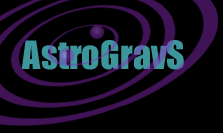This website is kept for archival purposes only and is no longer updated. Skip to content
 Mock LISA Data Challenge
Mock LISA Data Challenge
Mock LISA Data ChallengeIn support of the Laser Interferometer Space Antenna (LISA) gravitational wave observatory, we are conducting several rounds of mock data challenges. The LISA Mock Data Challenges were proposed and discussed at meetings organized by the US and European LISA Project that were attended by a broad cross section of the international gravitational-wave community. These challenges are meant to be blind tests, but not really a contest.These serve the dual purposes of fostering the development of LISA data analysis tools and capabilities, and of demonstrating the technical readiness already achieved by the gravitational-wave community in distilling a rich science payoff from the LISA data output.The Mock LISA Data Challenge (MLDC) Taskforce has been working since 2006 to formulate challenge problems of maximum efficacy, to establish criteria for the evaluation of the analyses, to develop standard models of the LISA mission (orbit, noises) and of the LISA sources (waveforms, parameterization), to provide computing tools such as LISA response simulators, source waveform generators, and a Mock Data Challenge file format, and more generally to provide any technical support necessary to the challengers, including moderated discussion forums and a software repository. The challenges involve the distribution of several datasets, encoded in a simple standard format, and containing combinations of realistic simulated LISA noise with the signals from one or more LISA gravitational-wave sources of parameters unknown to the challenge participants. The first round of challenges focused on parameter estimation for examples of several sources in otherwise clean noise. Subsequent challenge datasets, have addressed increasingly ambitious data-analysis problems. Round 2, completed in 2007, focused on the global analysis problem. A re-issue of challenge 1, called Round 1B, also ran in 2007 to provide an easy opportunity for new groups to develop analysis codes. A similar challenge, Round 1C, oriented toward students of gravitational-wave astronomy, is ongoing. Round 3, with new sources and source models finished in Spring 2009. The current challenge Round 4 returns to the global analysis problem, this time with the richer set of sources developed for Round3. The deadline for Round 4 entries will be in late fall 2010. |
|